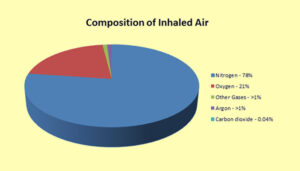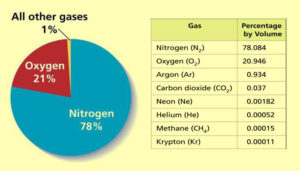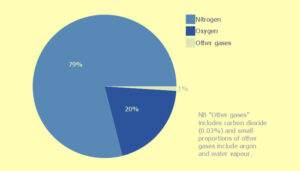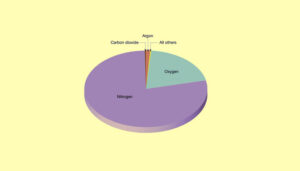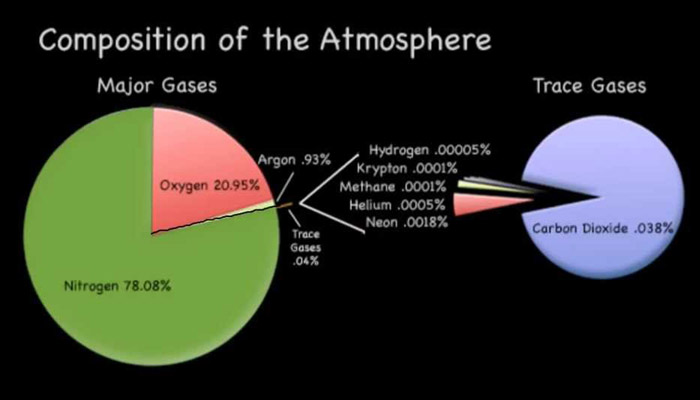We will delve into the Neon percentage of atmosphere of Earth, exploring its significance, sources, and impact. Neon, often associated with vibrant signs and lighting, is not just confined to man-made applications. It’s a fascinating element that also exists in trace amounts in the Earth’s atmosphere.
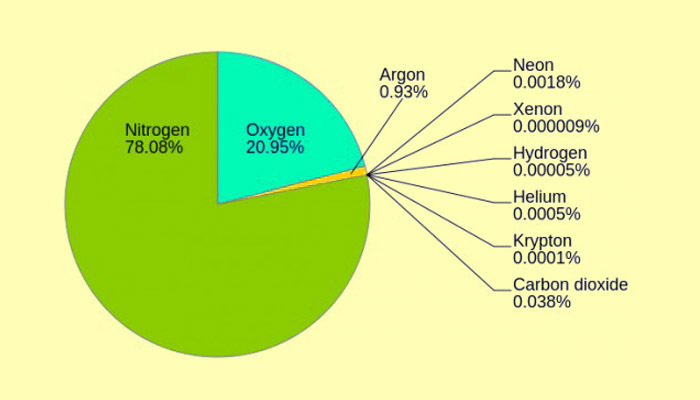
Table of Contents
0.0018 is the Neon Percentage in Atmosphere
Neon constitutes only a minuscule portion of the Earth’s atmosphere, making up about 0.0018% of the air we breathe. While this might seem negligible, its presence is noteworthy when compared to other gases like oxygen and nitrogen. Understanding the composition of our atmosphere is crucial for comprehending the delicate balance that sustains life on Earth.
The origins of neon in our atmosphere are diverse. Natural processes, such as the decay of radioactive elements and cosmic ray interactions, release neon into the air. Additionally, human activities, including industrial processes, contribute to the presence of neon in our surroundings.
Measurement Techniques
As a noble gas, neon possesses distinctive characteristics. Its inert nature makes it stable and unreactive, contributing to its longevity in the atmosphere. Researchers leverage these properties for various scientific purposes, from studying atmospheric conditions to advancing technology.
Analyzing the percentage of neon in the atmosphere involves sophisticated techniques. Researchers collect air samples and use advanced equipment to precisely determine the concentration of neon gas. Technological advancements continue to refine these measurement methods, providing increasingly accurate results.
Neon’s Role in Earth’s Development
The discovery of neon dates back to the late 19th century, marking a pivotal moment in our understanding of elemental composition. Over the years, scientific exploration has deepened our knowledge of neon’s presence in the Earth’s atmosphere.
Beyond its atmospheric presence, neon plays a role in geological processes. Its interaction with other elements has implications for the evolution of Earth’s atmosphere over geological timescales.
While neon has a negligible direct impact on climate dynamics, its presence contributes to the overall atmospheric balance. Understanding these subtle influences is essential for comprehending Earth’s climate systems.
Neon and Human Health
Fortunately, the trace amounts of neon in the atmosphere pose no threat to human health. In fact, neon finds applications in the medical field, demonstrating its benign nature and versatility. The study of neon in the Earth’s atmosphere opens doors to exciting possibilities. Ongoing research may unravel new facets of its role, leading to advancements in various scientific and technological domains.
In conclusion, while neon comprises a small fraction of Earth’s atmosphere, its significance extends beyond its scarcity. From historical discoveries to current scientific pursuits, neon continues to captivate our curiosity. Understanding its role enriches our comprehension of Earth’s atmospheric dynamics and opens avenues for future exploration.
FAQ – Frequently Asked Questions
Is neon harmful in the atmosphere?
No, neon in the atmosphere is harmless. It’s an inert gas and does not pose any threat to human health.
How is the percentage of neon in the atmosphere measured?
Scientists use advanced techniques to analyze air samples, determining the concentration of neon accurately.
What are the natural sources of atmospheric neon?
Natural processes like the decay of radioactive elements and cosmic ray interactions release neon into the atmosphere.
Can neon influence Earth’s climate?
While neon has a minimal direct impact on climate, its presence contributes to the overall atmospheric balance.
Are there potential future applications of studying atmospheric neon?
Ongoing research on atmospheric neon may lead to advancements in various scientific and technological fields.
